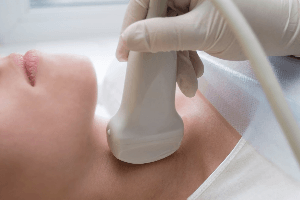MEN'S HEALTH: COMMON CONCERNS FOR AGING SENIORS
Admin • September 2, 2021

Even though women, statistically, live longer than men, that doesn't mean males shouldn't care about their health as they age. With an average life expectancy of 76.1, according to the U.S. Centers for Disease Control and Prevention (CDC), senior men have decades of living to look forward to. And that makes taking advantage of preventative healthcare absolutely essential.
What health issues are important for aging men to be aware of? Whether you're a senior or you have a loved one who is, take a look at the top men's health concerns that grow with age.
Prostate Issues
Most men don't think about their prostate — that is, until they start aging. The small gland sits under the bladder and is responsible for helping to make semen. The man's urethra (the tube that allows semen and urine to be released) runs through the prostate.
Prostate enlargement is often expected as a man ages, making problems possible after a man reaches age 50. Depending on the cause and type of enlargement, a growing prostate may or may not be a medical issue. This is what makes getting regular men's health checkups and diagnostic testing crucial during the senior years.
One of the most common prostate problems is benign prostatic hyperplasia (BPH). Even though this condition causes enlargement, it's not a cancer-causing issue. Some doctors will recommend watchful waiting for minor BPH.
If the symptoms are causing problems, such as difficulty urinating, medications can help to reduce the size of the prostate. When medications don't work, surgery, radio-wave procedures, and lasers can help to alleviate the symptoms and return a comfortable urine flow.
An enlarged prostate, in some men, may indicate cancer. If you have concerns about an enlarged prostate, the doctor will examine the area, feel for lumps or growths, and test your blood for prostate-specific antigen (PSA) levels. These tests will help the doctor to form a diagnosis and treatment plan.
Fortunately, you have many different treatments for prostate cancer, including surgical removal, radiation therapy, and hormone therapy.
High Cholesterol
Your body needs some cholesterol to survive. But an excessive amount can cause serious cardiac problems. Men over age 20 should have a total cholesterol level between 125 and 200 mg/dL. The LDL (also known as bad cholesterol) number should be no higher than 100 mg/dL and the HDL (good cholesterol) level should be at least 40 mg/dL.
Age, genetics, physical activity, lifestyle factors (such as smoking), and diet all play key roles in the development of high cholesterol and the resulting heart disease. Some recent research points to increasing aerobic exercise as a way to combat age-related high cholesterol in men.
Along with regular checkups and blood tests (for all cholesterol levels), senior men should get plenty of activity and eat a heart-healthy diet that includes lean meats, fish, fresh fruits, and vegetables.
High Blood Pressure
High cholesterol may be a major factor in the development of heart disease, but it certainly isn't the only medical condition that puts a man at risk. High blood pressure can also contribute to cardiac conditions, making it another important issue to keep under control.
The American College of Cardiology and American Heart Association recently revised their high blood pressure guidelines. These guidelines include a new reference for doctors to diagnose and treat the condition, as well as guidelines for preventing and managing high BP.
The new recommendations advocate for starting medical treatment when blood pressure reaches 130/80 instead of the former guideline of 140/90.
Controlling blood pressure can reduce the senior man's risk for heart attack, stroke, and other related issues. Regular blood pressure screenings, early intervention, and managing lifestyle factors (such as increasing physical activity and eating a healthier diet) can lower the senior man's numbers and improve overall health.
Do you need a men's health exam? Contact Hampstead Medical Center PC for more information.

The IUD, or intrauterine device, is one of the most effective methods of birth control available. Unlike birth-control pills, you do not need to remember daily to administer medication, and the device itself lasts longer than shots and is easier to use than rings. Many women find all of these benefits desirable for a birth-control method. There are two general types of IUDs available to women. The first type is the copper IUD, and the other is hormonal. Which one is right for your personal birth-control needs?

Although the risk of cardiovascular disease increases as you get older, many people who die suddenly of a heart attack didn't previously know they had heart disease. That's why identifying risk factors for heart attack and stroke is so critical to cardiovascular health. Fortunately, with regular exams and the many types of screening tests available, doctors can detect early signs of heart disease.

Even if you've never had cause to doubt your thyroid function, if you're a female who has recently given birth, you may be at risk for thyroid issues. An estimated 12 percent of Americans deal with thyroid trouble at some point during their adult lives, and women are significantly more likely than men to develop a thyroid-related ailment. Unfortunately for new mothers, many of the most common signs of an underactive thyroid (like weight gain, mood swings, fatigue, and irritability) are also quite common for those dealing with a newborn's frequent night wakings and the realities of a post-partum body. Read on to learn more about some common (and not-so-common) signs that you could be dealing with a pregnancy-induced thyroid problem as well as some treatment options that can be safely administered or performed while you're breastfeeding. What Can Cause Thyroid Problems During Pregnancy? As with many other hormonal disorders, there are often more questions than answers when it comes to thyroid function. However, researchers have pinpointed a few factors and health conditions that can raise the risk of a woman’s developing a thyroid issue during or immediately after pregnancy. For example, while only around 7 percent of women are at a general risk of developing postpartum thyroiditis, this risk increases to 25 percent for women who have Type 1 diabetes or who dealt with elevated antithyroid antibodies during pregnancy. Women whose anti-peroxidase (anti-TPO) antibodies were elevated during pregnancy may have a 1 in 2 chance of developing postpartum thyroiditis, and those who have dealt with thyroid issues in the past (or during previous pregnancies) also deal with a significantly increased risk. In other cases, thyroid problems may have no cause that can easily be pinpointed; the rush of various hormones during pregnancy and the strain they can put on various systems, including the endocrine system, can create a sort of "perfect storm" in which thyroid problems may thrive. What Are Some Signs You're Dealing With Post-Pregnancy Thyroid Issues? Thyroid problems can take a number of forms, including hypothyroidism (an underactive thyroid), hyperthyroidism (an overactive thyroid), Graves' disease (an autoimmune condition that causes goiter), or Hashimoto's disease (an autoimmune condition in which the body's immune system attacks healthy thyroid cells, eventually stopping all thyroid function). The signs and symptoms for each thyroid disorder are unique and often at opposite sides of the spectrum. For example, hypothyroid patients often report being cold, having dry skin, sleeping more than normal, or gaining weight without trying while hyperthyroid patients sweat profusely, suffer from insomnia, and can lose a significant amount of weight in a brief period. Postpartum thyroiditis often manifests as either an underactive or overactive thyroid, which usually normalizes itself in a few months. Symptoms lasting longer than that or that appear to be getting worse may necessitate medical intervention. What Treatment Options for an Underactive Thyroid Are Best for New Mothers? Whether you suspect you have postpartum thyroiditis or have been formally diagnosed, you may be worried about how your potential treatment options could impact your ability to breastfeed and what effect (if any) they might have on your child. Fortunately, there are a number of effective options from which to choose. If your postpartum thyroiditis is deemed autoimmune in origin, there is some evidence that taking selenium supplements could help normalize your thyroid function without requiring you to take hormonal medication (which might pass into your milk supply). If your symptoms aren't severe and don't impact your daily life, you may instead opt for watchful waiting, maintaining contact with your doctor and reporting any worsening symptoms but avoiding medication or other treatment for the time being. However, if your doctor recommends supplemental thyroid hormone, this usually means some intervention is necessary to prevent permanent damage to your thyroid and the organs and systems that depend on a steady dose of hormones. Make an appointment with Hampstead Medical Center PC to get started taking care of your health.







